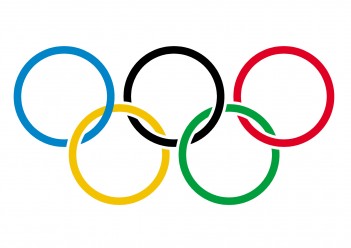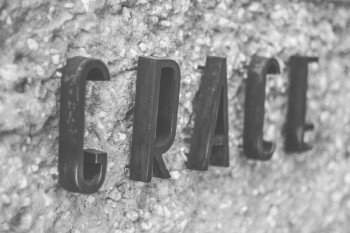The 2016 Olympic Games officially start today in Rio de Janeiro, Brazil. Here are nine things you should know about the world’s leading international sporting event:
1. The original ancient Olympic Games were dedicated to the Olympian gods (especially Zeus and Hera) and held in Olympia, in southern Greece. The first games are believed to have been held in 776 BC. During this time, Jeroboam was king of the northern kingdom of Israel and Azariah was king of Judah (2 Kings 15:1). It was the era of the prophet Jonah and about a year before the birth of the prophet Isaiah.

2. The original games continued for almost 12 centuries, until about AD 393. It’s often claimed that the Roman emperor Theodosius I abolished the games. But if so, it was likely only indirectly. Theodosius issued a series of edicts that abolished pagan holidays, closed pagan temples, and made Nicene Christianity the official state church of the Roman Empire. These decrees affected almost every aspect of Greek pagan culture—a culture with which Olympic Games were closely associated.
3. The idea of reviving the modern Olympic Games came to Pierre de Coubertin, a French aristocrat and educator, in 1889. Coubertin proposed the idea at a conference on international sport in Paris in June 1894, and it was unanimously approved by the nine participating countries. His efforts led to the establishment of the International Olympic Committee and the organization of the first modern Olympic Games in Athens in 1896.
4. Women did not compete in the first games held in 1896, but they took part in the next event in Paris in 1900. Out of 997 athletes 22 were women (less than 3 percent of the total) and they only participated in five sports: tennis, sailing, croquet, equestrian, and golf (only tennis and golf had women-only events). Today, women compose about 45 percent of the athletes at the Summer Olympics. There are two events (synchronized swimming and gymnastics rhythmic) that are open to women but not to men, one (wrestling Greco-Roman) that is open to men but not women, and three (equestrian dressage, equestrian everything, and equestrian jumping) that are mixed. Since 1991, any new events added have to be open to women.
5. From 1912 to 1948, art competitions were part of the Olympic program. Medals were awarded for sports-related themes in five categories: architecture, literature, music, painting, and sculpture. At the first event, the Olympic founder Coubertin submitted his poem “Ode to Sport” under the pseudonyms Georges Hohrod and Martin Eschbach, as if it were a joint-entry. He won the first gold medal in the literature category. Two artist-athletes won medals in both the art and athletic competitions: American Walter W. Winans won for shooting and sculpture, and Hungarian Alfréd Hajós won medals for swimming and architecture.
6. Coubertin also designed the iconic symbol of the Olympic Games: five interlocking rings—colored blue, yellow, black, green, and red—on a white field. In the August 1912 edition of Olympique, Courbertin said:
These five rings represent the five parts of the world now won over to Olympism, ready to accept its fruitful rivalries. In addition, the six colours combined in this way reproduce the colours of every country without exception. The blue and yellow of Sweden, the blue and white of Greece, the tricolor flags of France, England, the United States, Germany, Belgium, Italy, and Hungary, and the yellow and red of Spain are included, as are the innovative flags of Brazil and Australia, and those of ancient Japan and modern China. This, truly, is an international emblem.
The Olympic Charter also says that the five rings represent the “union of the five continents” (i.e., Africa, the Americas, Asia, Europe, and Oceana).
7. In 1924, the Scottish athlete Eric Liddell became renowned for choosing his religious convictions over his allegiance to his sport. Liddell was slated to run the 100-meter race in the 1924 Summer Olympics. But when he learned the qualifying heat was on Sunday, he refused to run—a decision that was condemned in both the British press and Parliament—because, he said, “I object to Sunday sport in toto.” He competed in instead in the 400 meters, an event in which he was not expected to win. However, Liddel not only won the race, he even broke the Olympic and world records with a time of 47.6 seconds. He would later go on to become a missionary in China, and his Olympic race was depicted in the Oscar-winning 1981 film Chariots of Fire.
8. At the 1964 Tokyo Olympics, two brothers from Sweden, Lars Gunnar Käll and Stig Lennart Käll, were competing in a sailing event when they faced a vexing choice: attempt to win a medal or save their rivals. After seeing the Australian team’s boat had capsized, the Käll brothers steered their boat over and rescued the stranded sailors. Their behavior led to the creation of the Fair Play Prize, which is still handed out today to recognize outstanding acts of sportsmanship.
9. There are 207 teams competing at the games representing 206 nations and a refugee team. The Refugee Olympic Team will compete under the Olympic flag and has 10 members: five from South Sudan, two from Syria, two from DR Congo, and one from Ethiopia. The six men and four women will compete in swimming, judo, and athletics. “These refugee athletes have no home, no team, no flag, no national anthem,” said International Olympic Committee president Thomas Bach. “It can send a symbol of hope for all refugees in the world and can send a signal to the international community that refugees are our fellow human beings and are an enrichment to society.”





